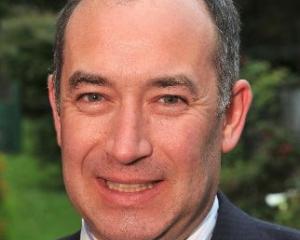The Dunedin City Council's review of the Forsyth Barr Stadium operating model will have to grapple with the potential to fuel a money-go-round that could drive up rates across the city, council staff say.
Councillors considering the Dunedin City Council's draft budget this week asked staff to reconsider the stadium's rates bill, as part of a wider review announced by council chief executive Dr Sue Bidrose.
The move came as the council confirmed the stadium's value was set to increase on July 1, from $153 million to $164 million, following a recent assessment by Quotable Value.
QV figures would normally be used to calculate the stadium's rates bill, but councillors in 2010 granted the venue a subsidy amounting to 93%, reducing its nearly $2 million annual rates bill to $134,000, later adjusted for inflation.
The discount aimed to avoid ''distorting'' the rating system for other properties, and meant the council would receive the same rates as it would have from properties previously occupying the stadium site.
Cr Lee Vandervis on Monday called for that to be reconsidered, despite warning it could drive up general rates, saying more council funding to cover a higher stadium rates bill would be ''more honest''.
But, with Dunedin Venues Management Ltd already unable to meet budgets, council financial planner Carolyn Howard said any increase in the company's rates bill could come back to ratepayers.
''If we did rate the stadium and we had an increase in its value like that, then we'd have to look at the funding issue again, so you'd get that circular problem.
''If the stadium was rated normally, like a normal non-residential property, and if the stadium needed to pay that, then they would require more financial assistance from the council, and that would drive general rates up.''
The issue would be considered as part of the wider stadium review announced by Dr Bidrose last week, which it was hoped would be completed by the middle of the year.
Cr Vandervis said when contacted yesterday it was the stadium's rates discount - not the threat of a full rates bill - that distorted the rating system.
The discount meant the stadium paid only ''a fraction'' of its infrastructure costs, including electricity, water and roading, ''forcing other commercial properties and businesses to pay for those services''.
''It would be more honest for the stadium to pay its rates and claim them as an operating expense like every other Dunedin business enterprise. Then the public would have a better idea of how much greater Dunedin ratepayer bail-outs of the stadium are.''
Cr Richard Thomson, chairman of the council's finance committee, disagreed, telling Monday's meeting that would leave the average ratepayer paying more.
''That would be the impact. That's why we changed it in the way in which we did.''
The QV figures also showed the stadium's value had increased by 7.2%, above the city-wide increase in property values, which stood at 3.6%.
QV staff said yesterday the increase in the stadium's value reflected the rising cost of construction, minus depreciation, ''but the costs are going up faster than the depreciation''.
Ms Howard said the QV valuation was separate from work by Darroch Valuations, in 2011, which put the venue's value at $225 million, and an earlier council report, which discussed a value of between $175 million and $200 million.
A review by PricewaterhouseCoopers put the stadium's construction cost at $224.4 million in 2012, while the council last year said the cost could be as high as $266 million, if a list of $42 million in stadium-related extras was included.
Ms Howard said the work by Darroch Valuations had been used to calculate DVML's annual $4 million rent requirement - paid to Dunedin Venues Ltd to help service borrowing costs - but QV figures were used for rateable values.
Councillors on Monday also voted in favour of a CPI adjustment of the stadium's rates bill, amounting to a 1.4% increase for 2014-15.
That would lift the stadium's rates bill by almost $2000, from $135,600 - excluding GST - to $137,500.






